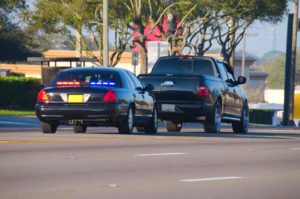For most people, getting arrested is a frightening and stressful situation. If you do not have experience with the criminal justice system and are not sure what to expect, the unfamiliarity and fear can make a tough circumstance even more difficult. For this reason, you need a criminal defense attorney to help you understand what you or your loved one may face after a South Carolina arrest. This puts you in the best position to fight for a positive outcome in your case.
The criminal defense attorneys at the Law Office of H. Chase Harbin advocate for you after an arrest. If you or a loved one was arrested in South Carolina, call 864-288-6763 today to get the help you need.
What happens when you are arrested and booked in South Carolina?
In most cases, your first introduction to the criminal justice process occurs during your arrest. A police officer reads you your Miranda rights and takes you into custody. When you arrive at the local jail, the booking process begins.
During this process, a police officer will fingerprint you, take your mug shot, and obtain other identifying information. A medical professional, who serves as a staff member at the jail, will evaluate your general condition and health. In some circumstances, you may undergo drug or alcohol testing. They will give you the option to make a phone call to a loved one, a bail bondsman, or a criminal defense attorney.
If police recently arrested your loved one in South Carolina, we recommend you give us a call as soon as possible. The police may question your family member, and it is in his or her best interest to remain silent and not discuss any alleged criminal activity with police or other individuals until we are present.
What is the bond setting process like?
Most people remain in jail no more than 24 hours before their Bond Court appearance. When possible, we like to be at this appearance with our clients. This is especially true if you face serious accusations that could result in significant prison time or other penalties.
During the Bond Court appearance, a judge will look at your case and decide if you can post bond to get out of jail. We can often convince a judge to offer a lower bond based on your financial situation, clean criminal record, and facts about your case.
In addition to setting a bond amount, the judge may put other conditions on your release. He will explain these during this appearance, as well. Once we know how much you need to pay to bond out of jail, we can help you contact a bail bondsman to make this deposit. Once the bondsman posts your bail, jail staff will release you from custody.
What can you expect during General Sessions Court?
Preliminary Hearing
If you face serious misdemeanor or felony charges, your case will likely proceed to General Sessions court. Any defendant with a case pending in this court can request a preliminary hearing. This hearing shows that the prosecution has probable cause to charge you with a crime. This is the first chance we have to challenge the charges against you. We have only 10 days after your Bond Court appearance to request this hearing, so it is important we act quickly.
During the preliminary hearing, a judge listens to the prosecution’s evidence against you and we present evidence in your favor. The judge then has to decide if there is a good reason to believe you committed a crime. There are three possible outcomes of this hearing. The judge can:
- Allow the prosecution to continue;
- Alter the charges against you; or
- Dismiss the case.
First Appearance
Your First Appearance, or Roll Call, is set within 45 days of your arrest. It is a necessary step for most defendants with cases proceeding in General Sessions court. During this appearance, a judge may ask you basic questions, but you will not have to enter a plea. The judge will take this opportunity to schedule your trial date.
You must appear at your Roll Call or you may face a warrant for your arrest. We can attend this appearance with you and advise on the specifics of your case.
What if you are charged with a minor misdemeanor?
Minor misdemeanor cases proceed in a Magistrate Court. Because these charges are not as serious, the courts do not need to take as much time prosecuting them. Instead of a preliminary hearing and first court appearance, you learn your trial date at Bond Court.
We have three options in these cases:
- Attend the trial date and plead guilty;
- Attend the trial date and face a bench trial decided by the judge that day; or
- Contest and challenge the charges against you.
We recommend most of our clients opt to contest and challenge the charges against them. We will notify the court of this choice before your court date and file the appropriate motions to contest the charges.
The main reason we encourage clients to choose this route is because it is the only way we can conduct pre-trial discovery and build the strongest possible defense. This also gives us an opportunity to file motions to throw out illegally obtained evidence or to disallow questionable drug test results or other unreliable evidence.
By challenging the charges against you, we gain several months to investigate your case and learn everything we can about your situation. Then, we can schedule a pre-trial conference with the prosecution. In this meeting, we are often successful in negotiating plea agreements for our clients. If not, we request a trial date in your case.
What happens if you are facing a criminal trial after an arrest?
No matter if your case proceeds in General Sessions or Magistrate Court, you have the option of a criminal trial in front of a jury. We recommend this to most of our clients because it gives you the best chance at a fair trial. In General Sessions Court, there are 12 jurors and several alternates. Magistrate Court cases typically have six jurors.
The jurors will receive strict instructions about their role in your case. They will listen as the prosecution lays out the evidence against you. We can cross-examine their witnesses and present evidence in your defense to the jury. At the end of the trial, the jury deliberates and returns a verdict. If they find you guilty, the judge will issue your sentence that day or schedule a future sentencing date.
How can you reach a South Carolina criminal defense attorney about your case?
If you face an impending arrest, recently bonded out, or your loved one was recently arrested, you need a knowledgeable criminal defense lawyer on your side. Call the Law Office of H. Chase Harbin today at 864-288-6763 to schedule a case evaluation and learn more about our services.

Chase Harbin is a Criminal Defense Lawyer who practices in Pickens and Greenville, SC. He graduated from the University of South Carolina School of Law, and has been practicing law for 17 years now. Chase Harbin believes in defending the accused. Learn more about his experience by clicking here.

